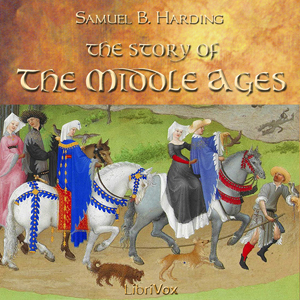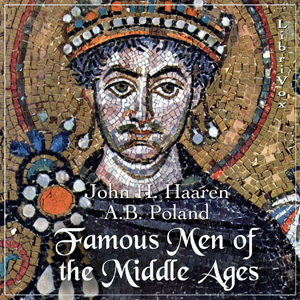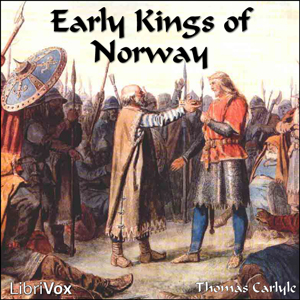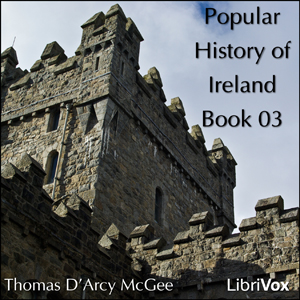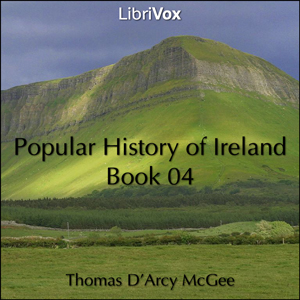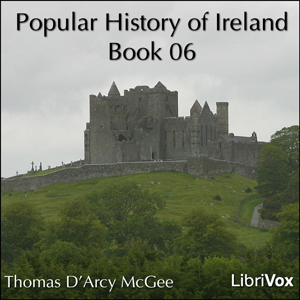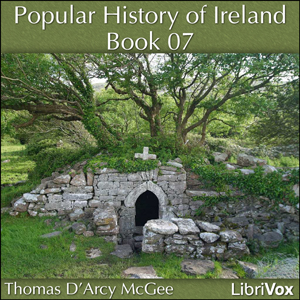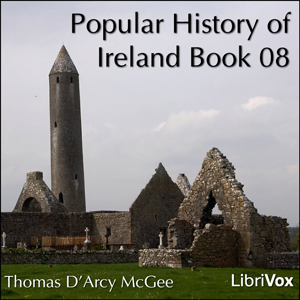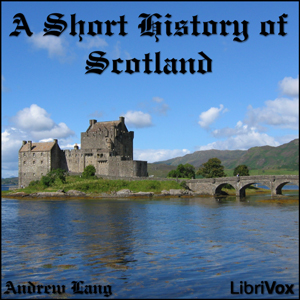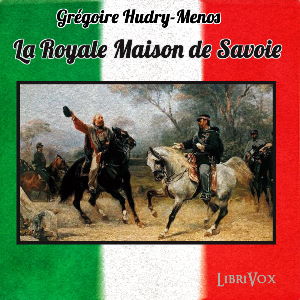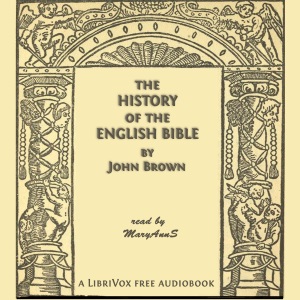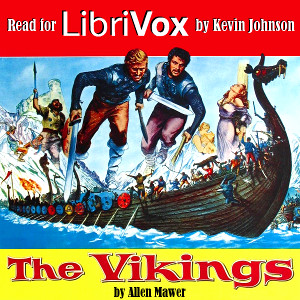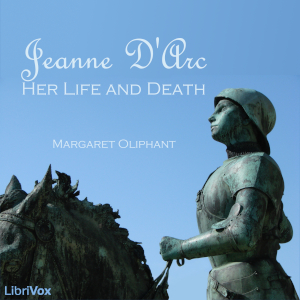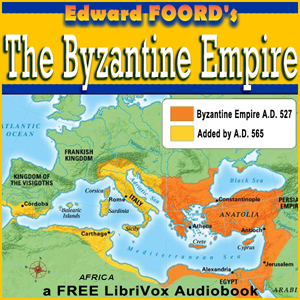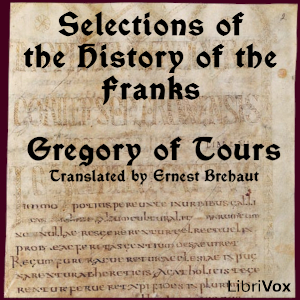Intended for a youthful audience, The Story of the Middle Ages, published in 1906, tells the history of the Middle Ages in simple and entertaining fashion, and helps to explain the influence of the Middle Ages on modern times. Topics covered include the rise of the Christian church, Feudalism, Charlemagne, the Crusades, the Hundred Years' War, and the daily life of peasant, noble, and clergy. (Summary by Kara)
19 episodes
“THE study of history, like the study of a landscape, should begin with the most conspicuous features. Not until these have been fixed in memory will the lesser features fall into their appropriate places and assume their right proportions.
The famous men of ancient and modern times are the mountain peaks of history. It is logical then that the study of history should begin with the biographies of these men.
Not only is it logical; it is also pedagogical. Experience has proven that in order to attract and hold the child’s attention each conspicuous feature of history presented to him should have an individual for its center. The child identifies himself with the personage presented. It is not Romulus or Herecules or Alexander that the child has in mind when be reads, but himself, acting under similar conditions.”
(Excerpt from the Preface of “Famous Men of the Middle Ages”)
34 episodes
Thomas D'Arcy McGee was an Irish refugee and a father of the Canadian confederation. His work on Irish history is comprehensive, encompassing twelve books; Book 2 begins with the Norse or Danish invasion of the island and continues through the end of the Viking period. (Summary by Sibella Denton)
8 episodes

Gilbert Keith Chesterton was a prolific writer on many topics. His views of history were always from the standpoint of men and their interactions, and it may fairly be said he saw all of history as a battle between civilization and barbarism. So it has always been, and that remains true even today.
"But it is especially in the matter of the Middle Ages that the popular histories trample upon the popular traditions. In this respect there is an almost comic contrast between the general information provided about England in the last two or three centuries, in which its present industrial system was being built up, and the general information given about the preceding centuries, which we call broadly medieval."
As this quotation taken from the Introduction clearly shows, he is no mere pedant reciting dry dates and locations, but a profound thinker flooding new light onto those modern "myths" that have filled our histories. He is a master of paradox, and the technique of reducing his opponents' arguments to the logical absurdity they have inherent in them. He often turns them upside down. All of which makes his work both a sound subject for reflection and highly entertaining all the while it remains permanently timely.
(Summary by Ray Clare)
18 episodes
"The Icelanders, in their long winter, had a great habit of writing; and were, and still are, excellent in penmanship. It is to this fact, that any little history there is of the Norse Kings and their old tragedies, crimes and heroisms, is almost all due. The Icelanders, it seems, not only made beautiful letters on their paper or parchment, but were laudably observant and desirous of accuracy; and have left us such a collection of narratives (Sagas, literally "Says") as, for quantity and quality, is unexampled among rude nations. Snorro Sturleson's History of the Norse Kings is built out of these old Sagas; and has in it a great deal of poetic fire, . . . and deserves to be reckoned among the great history-books of the world. It is from these sources that the following rough notes of the early Norway Kings are hastily thrown together." (Excerpted from Thomas Carlyle's preface by Karen Merline)
10 episodes
Thomas D'Arcy McGee was an Irish refugee and a father of the Canadian confederation. His work on Irish history is comprehensive, encompassing twelve books; book 3 begins with the fortune of the family of Brian Boru and continues through the rise of the O'Conors to the political, economic, and religious condition of the island prior to the English invasion. (Summary by Sibella Denton)
6 episodes
A life of King Alfred of England originally composed in Latin, possibly sometime around 888 A.D. by the Monk and Bishop Asser, although some scholars contend that the work was actually composed much later by an unknown hand. (Summary by Douglas B. Killings)
7 episodes
Thomas D'Arcy McGee was an Irish refugee and a father of the Canadian confederation. His work on Irish history is comprehensive, encompassing twelve books; Book 4 begins with the first Norman invasion of the island and continues to the end of the 13th century. (Summary by Sibella Denton)
12 episodes
Thomas D'Arcy McGee was an Irish refugee and a father of the Canadian confederation. His work on Irish history is comprehensive, encompassing twelve books; Book 5 begins with the rise of the “Red Earl” and addresses the relations between Scotland and Ireland during the time of Robert the Bruce and his immediate successors.. (Summary by Sibella Denton)
4 episodes
Thomas D'Arcy McGee was an Irish refugee and a father of the Canadian confederation. His work on Irish history is comprehensive, encompassing twelve books; Book 6 subtitled the Native, the Naturalized, and “The English Interest”, covers the 14th and 15th centuries. (Summary by Sibella Denton)
10 episodes
Thomas D'Arcy McGee was an Irish refugee and a father of the Canadian confederation. His work on Irish history is comprehensive, encompassing twelve books; Book 7 subtitled “Unionized Crowns of England and Ireland”, addresses the Tudor period, particularly the actions of Woolsey and Henry VIII, before the Reformation, in 1541. (Summary by Sibella Denton)
4 episodes
Thomas D’Arcy McGee was an Irish refugee and a father of the Canadian confederation. His work on Irish history is comprehensive, encompassing twelve books; Book 8, subtitled “The Era of the Reformation”, addresses the late Tudor period, particularly the reigns of the children of Henry VIII, and ends with the end of the reign of Elizabeth I. (Summary by Sibella Denton)
12 episodes
The first volume of Lea’s monumental work on the Inquisition of Spain, covering its origin and establishment and its relations with the state. Also included are appendices listing Tribunals, Inquisitors-General, and Spanish coinage. (Summary by Ruth Golding)
58 episodes
A Short History of Scotland is a consise introduction to the history of Scotland from Roman times to the last Jacobite rebellion, written by the author of a much longer Scottish history. (Summary by Sibella Denton.)
54 episodes
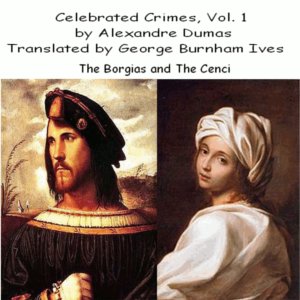
Dumas's 'Celebrated Crimes' was not written for children. The novelist has spared no language--has minced no words--to describe the violent scenes of a violent time.In some instances facts appear distorted out of their true perspective, and in others the author makes unwarranted charges. The careful, mature reader, for whom the books are intended, will recognize, and allow for, this fact. (from publisher's note)The first volume comprises the annals of the Borgias and the Cenci. The name of the noted and notorious Florentine family has become a synonym for intrigue and violence, and yet the Borgias have not been without stanch defenders in history.Another famous Italian story is that of the Cenci. The beautiful Beatrice Cenci--celebrated in the painting of Guido, the sixteenth century romance of Guerrazi, and the poetic tragedy of Shelley, not to
mention numerous succeeding works inspired by her hapless fate—will always remain a shadowy figure and one of infinite pathos. (from Introduction)
34 episodes
Ki no Tsurayuki was a Japanese waka poet of the Heian period. In 905, he was one of the poets ordered to compile the "Kokinshu - Collected Japanese Poems of Ancient and Modern Times". He is also one of the Thirty-six Poetry Immortals of Japan.
The Tosa Diary, written in 935, is considered the major work of Ki. It is an account of his return to the capital Kyoto from Tosa province, where he had served as governor since 930. The journey is by boat, and Ki no Tsurayuki tells about his sea sickness and fear of pirates, his impressions of the coast, and the various offerings to placate the gods of the sea. The Tosa Diary is written entirely in kana (the women's alphabet) and contains many poems composed by Ki during the journey.
6 episodes
On 15th June 1215 the Magna Carta was sealed under oath by King John at Runnymede, on the bank of the River Thames near Windsor, England. 2015 is the 800th anniversary of this charter, which led eventually to the rule of constitutional law in England and beyond. This book of essays on various aspects of the Charter was written by distinguished academics for the Royal Historical Society to commemorate the 700th anniversary of Magna Carta. N. B. The readers in this project are not scholars of mediaeval Latin or French. Where there are passages or phrases of Latin and Old French, we have endeavoured to make them clear, but make no claim to authentic pronunciation. (Summary by Ruth Golding)
19 episodes
Grégoire Hudry-Menos, modeste journaliste savoyard, apporte un nouveau point de vue sur l'histoire de la maison de Savoie, montée quelques années plus tôt sur le trône d'Italie. Ces «Études historiques» sont dédiées au roi Victor-Emmanuel II. - Summary by BeniaminoMassimo
5 episodes
The 3rd volume of Lea's monumental work on the Spanish Inquisition. This volume covers torture practices; the trial process; punishments; Jews, Moriscos, and Protestants; and censorship. - Summary by Sienna
71 episodes
Volume VII of a series containing anecdotes and stories, some well-known, others less so, of particular countries. This seventh volume covers the history of Spain from before the Moorish conquest to the loss of overseas territories at the end of the 19th century, describing history for children and young adults in an exciting and novel manner. - Summary by Kalynda
36 episodes
The celebration of the Tercentenary of the Authorized Version of the English Bible of 1611 has called into existence the little book here presented to the reader's notice. It is the brief repetition of a story beginning in 670 A.D. and reaching on for twelve hundred years to 1879. It takes us back to the Monastery of Whitby where Caedmon the monk paraphrased Scripture story in Saxon song, and brings us through the centuries to the Abbey of Westminster where a distinguished body of English scholars met in 1870 and commenced that Revision of the Scriptures which first saw the light in 1881. (From the Preface)
8 episodes
A detailed and exhaustive history of the Norwegian People, written in two volumes. The author, Knut Gjerset, was born in Western Norway in 1865 and immigrated to Chippewa County, Minnesota, in the US with his parents in 1871 and his brother Oluf later got elected to public office there. He received a B.A. in Literature from the University of Minnesota, and also studied at John's Hopkins University from 1895-1896, and the University of Heidelberg, where he was awarded a PhD, from 1896-1898. This first volume deals with the Norwegian History from the earliest times, to the early 14th century and covers topics such as: Prehistoric Norway and iron and Bronze age cultures in the area, the Viking era, The Christianization of Norway and some related information on Iceland, the Faroe Islands, Shetland/Orkney Islands, etc., Early kings of Norway, Norway in the Crusades, and foreign policy reformations at the beginning of the Late Middle Ages. - Summary by Ærik Bjørnsson
75 episodes
The life and accomplishments of England's sole title holder of "The Great." King Alfred defended England from Viking invasions and ushered in an era of learning and progress for the British Isles. Summary by Ryan Cherrick.
14 episodes
Elizabethan Demonology: An Essay in Illustration of the Belief in the Existence of Devils, and the Powers Possessed By Them, as It Was Generally Held during the Period of the Reformation, and the Times Immediately Succeeding; with Special Reference to Shakespeare and His Works
This Essay is an expansion, in accordance with a preconceived scheme, of two papers, one on "The Witches in Macbeth," and the other on "The Demonology of Shakespeare," which were read before the New Shakespeare Society in the years 1877 and 1878. The Shakespeare references in the text are made to the Globe Edition.
- Summary by Thomas Alfred Spalding
11 episodes
Richard Neville, 16th Earl of Warwick (1428-1471), wealthy and powerful peer of England, was one of the leaders of the Wars of the Roses (1455-1487). He joined Richard, Duke of York in opposing the ineffectual and often incapacitated Lancastrian king, Henry VI. Falling out with York's son, King Edward IV, he switched sides and joined forces with Henry's exiled queen, Margaret of Anjou, but was killed at the Battle of Barnet. In this short biography, the British military historian, Charles Oman (1860-1946) brings to life a consummate medieval warrior, who was also a politician ahead of his time.. - Summary by Pamela Nagami
17 episodes
“The history of Spain offers us a melancholy contrast. Twelve hundred years ago, Tarik the Moor added the land of the Visigoths to the long catalogue of kingdoms subdued by the Moslems. For nearly eight centuries, under her Mohammedan rulers, Spain set to all Europe a shining example of a civilized and enlightened State. Her fertile provinces, rendered doubly prolific by the industry and engineering skill of her conquerors, bore fruit an hundredfold. Cities innumerable sprang up in the rich valleys of the Guadalquivir and the Guadiana, whose names, and names only, still commemorate the vanished glories of their past.” - Summary by Stanley Lane-Poole
14 episodes
This is a concise history of the Vikings by Allen Mawer, MA, Professor of English Language and Literature in Armstrong College, University of Durham: late Fellow of Gonville and Caius College, Cambridge. It includes the following chapters: I.Causes of the Viking movement; II.The Viking movement down to the middle of the 9th century; III.The Vikings in England to the death of Harthacnut ; IV.The Vikings in the Frankish Empire to the
founding of Normandy (911);V. The Vikings in Ireland to the battle of Clontarf (1014); VI.The Vikings in the Orkneys, Scotland, the Western Islands and Man; VII.The Vikings in Baltic lands and Russia; VIII.Viking civilisation; IX. Scandinavian influence in the Orkneys, Shetlands, the Western Islands and Man; X. Scandinavian influence in Ireland ; XI. Scandinavian influence in England; and XII. Scandinavian influence in the Empire and Iceland. - Summary by Kevin Johnson
13 episodes

A reader of this history, encountering the frequent references to “my author,” meaning the current source, will be reminded of DON QUIXOTE and of THE MORTE D'ARTHUR, for Milton employs a style that might be called dissertational rather than novelistic; he carefully identifies his sources and often quotes from them. However, much of the scholarly documentation has been omitted from the reading—all except footnotes indicating the years—to avoid cumbersome interruptions.
What will be obvious to a listener, though, is that Milton uses earlier chronicles with discretion. He doubts the very existence of Arthur and proposes an ingenious explanation of the origin of his supposed father's name, Uther. When obliged to cite George Buchanan, the world-renowned neo-Latin author and tutor (later detractor) of Mary Queen of Scots, he regularly uses more than a grain of salt, in view of that scholar’s Scottish bias.
And as he carefully weighs the reliability of his sources, so he offers his candid opinion of the wisdom and integrity of historical figures. He sneers at the story of King Canute’s famously commanding the rising tide of waves to retire, but not for the reason one might suppose. Boadicea gets low marks, Alfred high ones—but not without some reservations. And in a long digression comparing the government of Britain, newly freed from Roman domination, to the British republic under Cromwell (for which, as Secretary of the Foreign Tongues, Milton was the voice), his criticism is so frank and savage that the passage had to be suppressed during his lifetime. Such personal opinions are what make this book entertaining and useful for the serious study of the author’s thought and personality.
The endearingly affectionate life of the author, written by his elder nephew, Edward Philips, offers much first-hand information although its facts are not always accurate and its coverage spotty. One learns nothing, for example, about Milton’s visit to the home of Galileo, but Philips's discussion of the role his cousins played in their father’s scholarly pursuits is detailed and affords no basis to the myth that he ever dictated his poetry to his daughters. (Summary by T. A. Copeland)
15 episodes

Following the Dissolution of the Monasteries in the time of Henry VIII, a significant part of the buildings of Torre Abbey, particularly the church area, lay in ruins. Then, during the 17th century and subsequently, surviving parts of the abbey were incorporated into the creation of a grand private residence, the owner of which in the early part of the 20th century was Colonel Lucius Cary. With the permission of the colonel, Hugh Watkin, who at that time was living in the Chelston district of Torquay, fairly close to the abbey, undertook certain excavations of the remaining ruins between the years of 1906 and 1911. Until he made his excavations the ruins had not been thoroughly investigated. This book sets forth his findings and conclusions, and is the last of the three editions published, being dated July, 1912. Much more archaeological work has been carried out since the author's day, and further important discoveries made relating to the abbey's history. Torre Abbey passed into the ownership of the local council in 1930. Today, the house, which is now an art gallery and museum, ruins and beautiful gardens are open to the public, and many events, including weddings and exhibitions, take place in the house and grounds every year. It is a Grade 1 listed building. - Summary by Garth Burton
10 episodes
The story of Jeanne d'Arc, or Joan of Arc , has passed into folklore and has been retold by many. The young teenager was sent by an as-yet uncrowned Charles VII of France to relieve Orleans from siege during the 100 Years' War with England, following visions she claimed to have received. After just nine days, she led the French army to victory and was subsequently burned at the stake for heresy. Later cleared of all charges, she was canonized in 1920. - Summary by Lynne Thompson
22 episodes
A short study examining the historical framework of England from the period of the Norman Conquest to the end of the fifteenth century.
The period from the Norman Conquest to the end of the fifteenth century may be conveniently and aptly labelled "Mediæval". Rich and varied as were the phases of its life, it has a certain homogeneity which marks it clearly off from the days before the Conquest and from the Tudor period. (- From the Preface)
7 episodes
A concise and comprehensive guide to the Byzantine empire from Constantine to its dissolution. Foord explores in an accessible manner why it was important to history, the significance of noteworthy events, and how it eventually fell. While sometimes describing the experience of the everyday people, he mainly focuses on the wars and policies of Byzantine emperors. (Summary by Elsie Selwyn)
24 episodes
Though sometimes called the "Dark Ages", the period of Middle Ages is far from dull or uninteresting. In this book I. L. Plunket masterfully shows the colorfullness and diversity of the Middle Ages. Heroes like Charlemagne, Richard the Lion Hearted, Joan of Arc and many others come to life in these pages. The rich religious life of the Middle Ages, controversies between different secular and religious authorities and general rising of nations in Europe are disclosed to the reader. - Summary by Kikisaulite
23 episodes
A simple history of England written principally with words of one syllable. Books of these kind, I understand, are helpful for both beginning and remedial reading students. - Summary by KevinS
23 episodes

This is the ninth volume of the 15-volume series of The World’s Story: a history of the World in story, song and art, edited by Eva March Tappan. Each book is a compilation of selections from prose literature, poetry and pictures and offers a comprehensive presentation of the world's history, art and culture, from the early times till the beginning of the 20th century. Part IX deals with the first part of the history of England, from the early times till the reign of the Tudor kings and queens. Chapters include stories about King Arthur, William the Conqueror, Robin Hood, Queen Elizabeth and many others. - Summary by Sonia
Cast list for A messenger from Rome:
Cymbeline: alanmapstone / Lucius: Jim Locke / Queen: Devorah Allen / Cloten: Tomas Peter / Narrator: Sonia
Cast list for Prince Arthur and the keeper Hubert:
Hubert: Jim Locke / First Executioner: Devorah Allen / Arthur: Tomas Peter / Narrator: Sonia
Cast list for Two scenes in the life of Henry V:
Falstaff: alanmapstone / Prince Hal/King Henry V: Tomas Peter / Host: Monika M.C.r / Warwick: Jim Locke / Chief Justice: Adrian Stephens / Lancaster: Todd HW / Gloucester: SaraHale / Clarence: Sandra Schmit / Narrator: Sonia
Cast list for The fall of Cardinal Wolsey:
Wolsey: Jim Locke / Cromwell: alanmapstone / Narrator: Sonia
81 episodes
The Historia Francorum is the most important contemporary source for the Merovingian age. It is written in ten books, of which one to four recount the world's history from the Creation and move on to the Christianization of Gaul, the life and times of Saint Martin of Tours, the conversion of the Franks, the conquest of Gaul under Clovis, and the history of the Frankish kings down to the death of Sigebert I in 575. From the fifth book on, Gregory starts the second part of the book, on his contemporary history, closing Book 6 with Chilperic I's death in 584. The third part, from books 7 to 10, take the account to the year 591, and concludes with a plea for further chroniclers to preserve his work in entirety. An epilogue was written in 594, the year of Gregory's death. (Summary by Leni)
18 episodes
